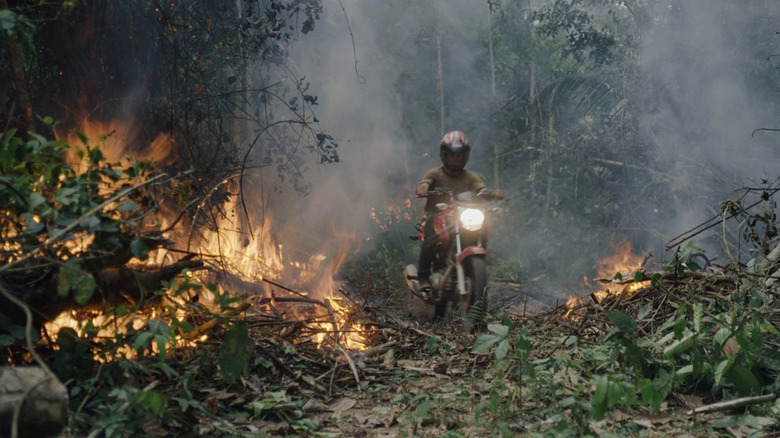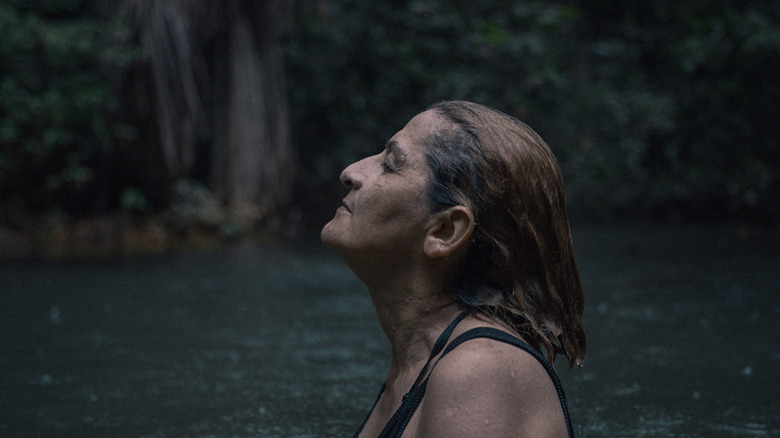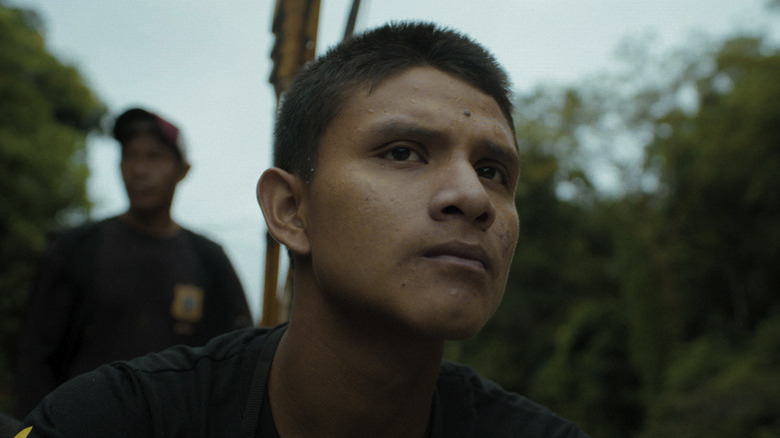The Territory Review: The Amazon Rainforest's Indigenous Inhabitants Stand Tall In The Face Of Extinction [Sundance 2022]
As a child, learning about the existence of the Amazon rainforest was almost akin to learning about a sanctified religious space. It was always spoken about with reverence, as if my teachers and even documentary narrators with fancy accents couldn't quite believe the awe-inspiring amount of flora and fauna that made up the region. I learned about its climate, its colorful poisonous frogs, its massive anacondas, its dangerous piranha ... but never once was I taught about the Indigenous people who live there.
Multiple Perspectives
"The Territory," the feature directorial debut from director Alex Pritz, takes us among the Uru-eu-wau-wau people, one of the Indigenous groups that's been living in the area for generations. In the early 1990s, the Brazilian government signed a law creating a protected territory for the tribe, ostensibly ensuring that no one would be able to take their land. But as has so often been the case with Indigenous territories throughout history, treaties and laws don't always provide the protection they promised. Right-wing politicians, including Brazilian President Jair Bolsonaro, have spent years encouraging non-Indigenous Brazilians to encroach on the Uru-eu-wau-wau's ancestral lands, chopping down trees and razing paths through the forest. Even though the government itself won't lead the initial charge across those borders, it implicitly supports this behavior by compensating these encroachers for their labor after the fact. Now there are less than 200 Uru-eu-wau-wau remaining.
Interestingly, "The Territory" embeds a camera crew with some of these Brazilian citizens, including Sérgio, the leader of a farming association whose members view their planned conquest of these areas as their God-given right. These folks and others like them have felt demonized by the media, so Pritz and the filmmaking team offered them the opportunity to speak for themselves on camera, understanding that this movie would also present the story from the Indigenous group's perspective. Turns out they don't need a journalist to demonize them over their actions — they're more than capable of doing it themselves, in their own words. One man insists that if he doesn't stake a claim to build a house on the Uru-eu-wau-wau's land, someone else will come along and do it; in his mind, it might as well be him. It's the same twisted "manifest destiny" mentality we saw in the early days of the United States, where the concept of westward expansion was so attractive that settlers were willing to steamroll over Indigenous populations to achieve it. It is infuriating to see the damage these people wreak as they burn down huge sections of land; all those early, wonder-tinged lessons from childhood about preserving the beauty of the Amazon come rushing back, and there's a visceral anger and disgust that occurs when you see it being treated so callously.
Cinema as Preservation
But much of the movie is spent with the Uru-eu-wau-wau, who co-produced this documentary along with Darren Aronofsky. Their segment of the story follows a teenager named Bitaté who has been tapped as the tribe's next leader, his pal Ari, who doesn't like the fact that people are invading their land, and Neidinha, an activist who has spent much of her life advocating on behalf of the tribe. There's a lot of debate about how proactive they should be when it comes to fighting off these invaders, and ultimately, Bitaté decides they need to stand up for themselves and fight to protect what is theirs. When the pandemic arrives and the filmmaking team aren't able to safely return to the tribe's home, the Uru-eu-wau-wau have armed themselves not only with bows and arrows, but with professional camera equipment, adding another important weapon to their arsenal: visual storytelling. Using drones and a slew of video cameras, they set out to provide hard proof that the trespassers are indeed breaking the law.
A gripping snapshot of crimes in progress and an engrossing piece of cinematic activism, "The Territory" is a testament to the importance of being able to preserve your own history and tell your own story, as well as a call to action for the world to notice what's happening in the Amazon ... before it's too late.
/Film Rating: 8 out of 10


